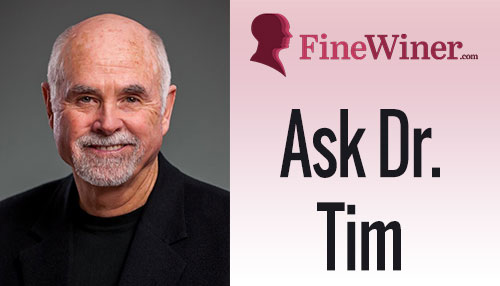Ask Dr. Tim: The other day my son accused me of having OCD…

Q
The other day my son accused me of having OCD. While I have heard the term, I don’t really know what he is talking about. I don’t wash my hands more than I need to. Beside I have no idea what to do about it anyway.
Hank
A
Dear Hank:
As Dr. Travis Osborne of Seattle says, Obsessive Compulsive Disorder (OCD) takes many forms. A person can be primarily bothered by mental “obsessions” or behavioral “compulsions”. But they often go hand-in-hand. Below is a list of the more common obsessions and compulsions.
Common Obsessions
- Contamination obsessions
Fears about becoming contaminated or spreading contamination to others (i.e., germs, dirt, bodily waste/fluids,environmental toxins, cleaners, poisons, illnesses)
- Aggressive/harm obsessions
Intentionally or unintentionally harming oneself or others, having violent images or thoughts
- Sexual obsessions
Sex with children, sex with animals, or incest
- Religious/moral obsessions (scrupulosity)
Sinful/blasphemous thoughts, doubting ones faith or beliefs, doubting whether one acted sinfully, thoughts about religious figures/icons, secular moral/ethical concerns
- Perfectionistic obsessions
Needing things to be in a certain order or place, questioning whether you did or said something perfectly, having to do things perfectly or with perfect intention
- Neutral obsessions
Sounds, words, images, or music
Common Compulsions
- Decontamination compulsions
Washing, showering, cleaning, disinfecting, throwing away things that feel contaminated
- Checking compulsions
Repeatedly checking (in live or in memory) i.e., locks, doors, windows, electrical appliances, stoves, outlets, light switches, car settings, paperwork, own body
- Perfectionistic compulsions
Arranging items in specific or symmetrical ways, doing or repeating activities until they feel just right, confessing to others, re-reading/ re-writing
- Movement compulsions
Gesturing/moving in specific ways, moving excessively slowly, repeating movements a certain number of times, stepping on special spots when walking, touching things in a certain order
- Counting compulsions
Counting while doing certain actions, doing actions a certain number of times
It is important to note that most of us have occasional obsessions or compulsions. They typically do not affect our lives much. But when they do interfere with our lives it is usually time to get some help. They can be vicious. One of the first tasks is to get a good assessment. When it comes to treatment, the gold-standard is a mixture of medication (SRI’s and SSRI’s) and Exposure and Response Prevention (ERP) psychotherapy.
Dr. Tim
